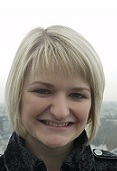Geography
What makes life ‘liveable’ for lesbian, gay, bisexual, trans and queer (LGBTQ) people in Southampton?
January 23, 2015
by Carla Barrett
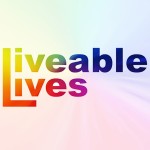 Liveable Lives project workshop (Southampton)
Liveable Lives project workshop (Southampton)
Sat 21st February, 12 noon to 3pm
Central Hall, Evans Street, Southampton, S014 1ZA
What makes life ‘liveable’ for lesbian, gay, bisexual, trans and queer (LGBTQ) people? And what makes life not liveable? The Liveable Lives project, based at the University of Brighton, wants to hear from Southampton! Places outside of big cities are often neglected in LGBTQ research in the UK, making this a rare opportunity for Southampton’s LGBTQ people to take part in an international project.
Southampton’s LGBTQ communities are invited to join us on Saturday 21st February, for an interactive project workshop that will explore what makes our lives ‘liveable’ rather than just ‘bearable’, so that life feels like living, and not just surviving. This ground-breaking research will gather stories and experiences of everyday life as an LGBTQ person through activities like drawing maps of our lives; making collages to visualise how we live our lives; and expressing ideas through writing. There will also be the opportunity to join in discussion groups with other LGBTQ people, and to have one-to-one interviews with researchers. Attendees who would like to stay involved in the project after the workshop will be able to take part through their mobile phones, using a quick and easy web-based app!
The workshop will be held at Central Hall, Evans Street, Southampton, SO14 1ZA on Saturday 21st February. LGBTQ people can drop in any time from 12 noon to 3pm, and come and go as suits them throughout the day. Food and drinks will be provided, and the venue is wheelchair accessible. Please bring along partners, friends, and share the invite with your networks.
Those wishing to take part or find out more about the project can contact us via Facebook (www.facebook.com/groups/liveablelives/) or Twitter (@liveablelives), or by sending us an email (liveablelives@brighton.ac.uk).
If you are interested in taking part, you can sign up here: http://goo.gl/forms/rrkY4OdCVK or join the Facebook event here: http://on.fb.me/1GpRu4U. This will help us plan for the numbers who wish to attend and let us contact you with further details about the event.
Call for Papers on Soviet and Post-Soviet Sexualities (UCL)
July 18, 2014
by Carla Barrett
Call for papers for a one-day workshop on
Soviet and Post-Soviet Sexualities
UCL School of Slavonic and East European Studies
Friday, 20 February 2015
The aim of this one-day workshop is to engage critically with the under-researched topic of Soviet and post-Soviet sexualities. Prompted by the introduction of laws restricting the rights of LGBTQ citizens and the increase in homophobic violence in Russia and other post-Soviet states, there is a pressing need to understand attitudes towards non-normative sexualities, the lived experience of sexual minorities and the ways in which LGBTQ individuals and groups seek/have sought to negotiate/resist heteronormative structures and homophobia in the specific socio-political, cultural and historic contexts of the Soviet and post-Soviet space. The workshop will comprise papers from and debate among both established academics and research students from a range of disciplines and working on various aspects of the study of non-normative sexualities in the Soviet and post-Soviet space. The aim is to publish a special issue and/or an edited volume of the papers presented.
Confirmed speakers:
- Philip Bullock, University of Oxford
- Dan Healey, University of Oxford
- Alexander Kondakov, European University of St Petersburg
- Richard Mole, University College London
- Francesca Stella, University of Glasgow
If you would like to participate, please send an abstract of 200-300 words to Richard Mole at UCL (r.mole@ucl.ac.uk) by 1 September 2014. Papers from researchers based in the former Soviet Union will be particularly welcome. Funds are available to make a contribution (up to 100%) towards presenters’ travel and accommodation costs.
LGBT Geography at the AAG Annual Meeting
March 31, 2014
by Carla Barrett
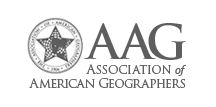 Every year, the AAG (Association of American Geographers) hosts an Annual Meeting to showcase the latest research in Geography, sustainability and GIS. This year the Annual Meeting is taking place in Tampa, Florida, from 8th to 12th April.
Every year, the AAG (Association of American Geographers) hosts an Annual Meeting to showcase the latest research in Geography, sustainability and GIS. This year the Annual Meeting is taking place in Tampa, Florida, from 8th to 12th April.
A number of sessions focus on LGBT people and spaces, including Trans* Geographies, Queer of Colour Geographies, and Challenging Hetero/Homonormativities in Homespaces.
In addition, Dr Lynda Johnston (University of Waikato) will give a paper on intersex bodies and geographies of prejudice; Dr Eleanor Wilkinson (University of Leeds) will present her research on queer temporalities and the politics of non-reproduction; and Dr Nathaniel Lewis (University of Nottingham) will give a paper on migration and wellbeing in the gay life course.
I will be tweeting from the conference so follow @SotonLGBT and @CarlaGeog on Twitter for updates.
Homomonument Amsterdam
March 17, 2014
by Carla Barrett
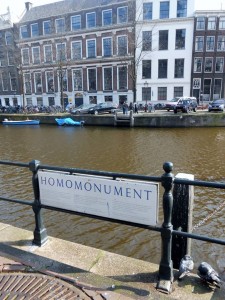 As part of the BA Geography programme at the University of Southampton, second year students spend 5 days completing fieldwork and developing their research methods in either Amsterdam or Paris. I recently returned from teaching on this year’s fieldtrip in Amsterdam.
As part of the BA Geography programme at the University of Southampton, second year students spend 5 days completing fieldwork and developing their research methods in either Amsterdam or Paris. I recently returned from teaching on this year’s fieldtrip in Amsterdam.
One of the key themes of the fieldtrip is memorialisation and we encourage the students to visit a number of sites including Anne Frank House in order to research the processes of memorialisation and place-making. One of the memorials that I personally visited was the Homomonument. The monument, which was first unveiled in September 1987, is located a short walk from Anne Frank House on the Westermarkt. The monument was constructed with the intention of not only commemorating the homosexuals who were persecuted during World War II, but to commemorate all LGBT people who face or have faced discrimination and oppression.
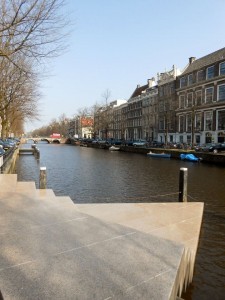 Designed by Karin Daan, the monument is composed of three smaller triangles contained within a larger triangle. As such, the design draws on or reappropriates the pink triangle sign used to identify homosexuals during World War II. One of the smaller triangles of the monument extends into the canal, and I feel that this is the focal point. It stands out, helping to shape the canal just as the LGBT people it commemorates help to shape the city of Amsterdam and world beyond.
Designed by Karin Daan, the monument is composed of three smaller triangles contained within a larger triangle. As such, the design draws on or reappropriates the pink triangle sign used to identify homosexuals during World War II. One of the smaller triangles of the monument extends into the canal, and I feel that this is the focal point. It stands out, helping to shape the canal just as the LGBT people it commemorates help to shape the city of Amsterdam and world beyond.
More information is available here.
LGBTQ Lives Research – New PhD Studentship opportunities, University of Brighton
January 28, 2014
by Laurence Georgin
New PhD Studentship opportunities: The University of Brighton is currently inviting prospective doctoral students who are interested in applying for a studentship in the Arts and Humanities with a focus on LGBTQ sexualities and gender research to contact them about the TECHNE partnership.
The LGBTQ Lives Research Hub offers an opportunity to work with scholars specialising in gender and sexualities research across a broad range of subject areas, including:
- Cultural Geography
- Media Studies
- Cultural Studies and Popular Culture
- Digital economy areas related to gender and sexuality
- Drama and sexuality
- Early modern sexuality and gender
- Literature and Film
Please send a short summary of your proposed project (500 words) and details of your qualifications to LGBTQ@brighton.ac.uk as soon as possible. The Research Hub will contact applicants to help liaise with potential supervisors and guide you in the submission of a formal application. The deadline for formal applications is the 19th February 2014. For further information download the flyer or go to http://arts.brighton.ac.uk/projects/lgbt/news/new-phd-studentship-opportunities
Geographies of carework in contemporary England: the domestic lives of LGBT couples
August 12, 2013
by Laurence Georgin
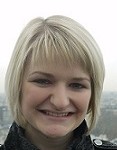 Traditionally, unwaged carework has been thought of as a female activity that belongs within the spaces of the family home. Social research into unwaged carework has tended to focus on gendered divisions of labour within heterosexual couples. Carla Barrett’s project considers unwaged carework in contemporary England, with a focus on the experiences of cohabiting LGBT couples.
Traditionally, unwaged carework has been thought of as a female activity that belongs within the spaces of the family home. Social research into unwaged carework has tended to focus on gendered divisions of labour within heterosexual couples. Carla Barrett’s project considers unwaged carework in contemporary England, with a focus on the experiences of cohabiting LGBT couples.
Geographies of carework in contemporary England: the domestic lives of LGBT couples
August 12, 2013
by Laurence Georgin
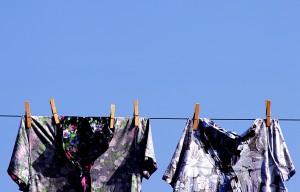 Traditionally, unwaged carework has been thought of as a female activity that belongs within the spaces of the family home. Social research into unwaged carework has tended to focus on gendered divisions of labour within heterosexual couples. This project considers unwaged carework in contemporary England, with a focus on the experiences of cohabiting LGBT couples. As such, it challenges the heteronormativity (or the unacknowledged assumption that heterosexuality is the natural and normal form of sexuality) prevalent in much of the existing geographical literature on carework.
Traditionally, unwaged carework has been thought of as a female activity that belongs within the spaces of the family home. Social research into unwaged carework has tended to focus on gendered divisions of labour within heterosexual couples. This project considers unwaged carework in contemporary England, with a focus on the experiences of cohabiting LGBT couples. As such, it challenges the heteronormativity (or the unacknowledged assumption that heterosexuality is the natural and normal form of sexuality) prevalent in much of the existing geographical literature on carework.
The project explores how LGBT couples divide unwaged carework (including physical, emotional and organizational domestic tasks); and how they understand and experience this work. This involves a consideration of how the divisions of carework are spatially manifested. In particular, the project seeks to uncover the role of sexuality and gender in couples’ understandings, experiences and divisions of carework.
Contact for more information
E-mail: carla.barrett@mencap.org.uk

